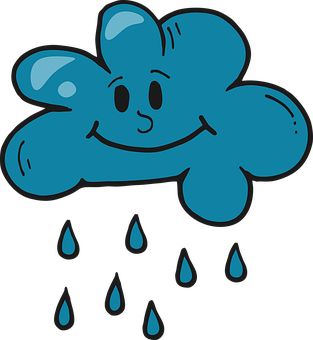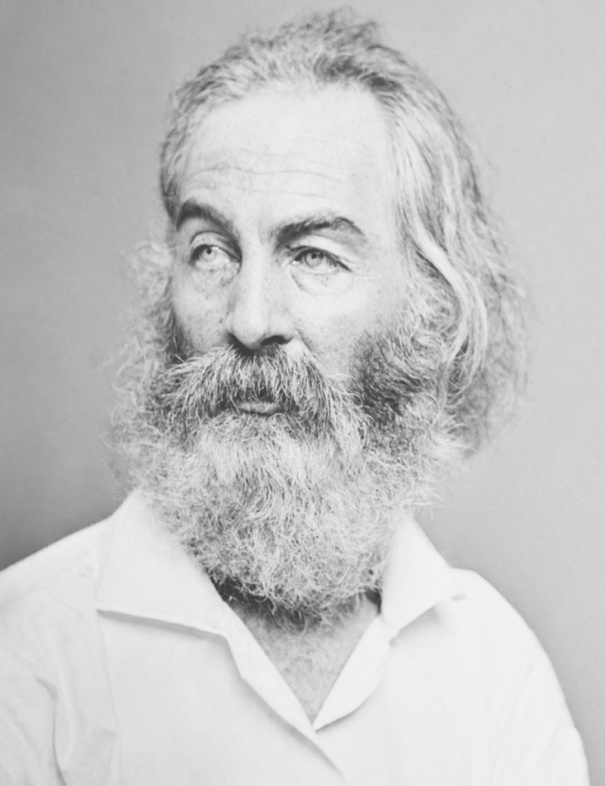- Books Name
- (English) Hornbill & Snapshot Class-11
- Publication
- PathSet Publications
- Course
- CBSE Class 11
- Subject
- English
The voice of the Rain
by Walt Whiteman
Introduction: The poem is a dialogue between the poet and the rain former vehicle in itself the Poem of Earth , it explains its lifecycle. Rising from the sea and the land in vaporous form, the raindrops fall back giving the world relief from drought and settling dust all over. It stimulates the dormant seeds to life and by soaking the earth once again it heads for a fresh lifecycle. A parallel is drawn between music and rain.
The voice of the rain
And who art thou? said I to the soft-falling shower,
Which, strange to tell, gave me an answer, as here translated:
I am the Poem of Earth, said the voice of the rain
Eternal I rise impalpable out of the land and the
bottomless sea,
Who art thou – Who are you
Eternal – never-ending
Impalpable – which cannot be described
Explanation:
In the above lines, the poet as the soft-falling Shower ‘who are you' ? to which the rain replied in a strange to state manner. The rain said that it was the Poem of the Earth and it is rose continuously from the land and bottomless ocean in the form of vapours.
Upward to heaven, whence, vaguely form’d, altogether changed, and yet the same,
I descend to lave the droughts, atomies, dust-layers of the globe,
And all that in them without me were seeds only, latent, unborn;
Whence – where
Vaguely – not clearly
Descend – come down
Lave – wash; bathe
Atomics – small particles
Latent – hidden/buried
Explanation
The rain tells the poet that it rises upwards towards the sky in the form of vapour where it changes its form (condenses into water droplets). It also says that although its form gets changed, it still remains the same.
The rain comes down to wash the drought and provide water. It also washes away the dust and small particles from the earth’s surface. And the seeds inside the earth grow into a plant because of the water provided by the rain. It gives life to the seeds.
And forever, by day and night, I give back life to my own origin,
And make pure and beautify it;
(For the song, issuing from its birth-place, after fulfillment, wandering
Reck’d or unreck’d, duly with love returns.)
Reck’d or unreck’d – it means whether cared for or not cared for. It doesn’t affect the rain nor the poet if someone listened to the rain or not.
Explanation
The rain says that by day and night it provides life, care, enrichment, and water to the place from where it originated. The rain keeps enhancing the beauty and purity of the earth by preparing a life-cycle for itself again.
(The Rain is like a song that originates from its birth-place, just like the heart of the singer, and travels to fulfil the earth’s needs and wanders. It finally comes back to the place from where it originated. Whether it is ruined or not, it returns to the original position, with a lot of love to its birth-place).
Poetic devices used in the poem
Personification: “And who art thou”? Although rain is non living thing yet the poet treats it like living thing.
Metaphor : ‘I am the poem of the Earth'
Imagery : ‘ soft-falling shower ’
Poem-3
The Voice of the Rain
By Walt Whitman

The Voice of the Rain Poem Introduction
It's a dialogue between the poet and the rain. To the poet, rain explains its eternal journey in its birthplace, i.e. earth. The poem The Voice of the Rain honours rain and the cyclical movement that it brings to the earth's various beings. The poet recalls his conversation with the falling rain in this section. "And who art thou?" he asks the rain, to which the rain responds that it is the poet of the Earth.
The Voice of the Rain Poem Summary
In the poem, the poet asks the soft-falling shower, "Who are you?" She responds, "I am the poem of earth." It's unusual for the rain to respond to the poet. The poet was told by the rain that she cannot be touched because she rises in the sky as water vapour from the land and the bottomless sea. It changes shape while remaining the same. Condensation transforms the vapour into clouds.
It returns to the earth's surface to provide water to drought-prone areas as well as to beautify and purify the earth (its birthplace). It gives life to the seeds inside the earth and aids in their growth. The rain doesn't care if anyone notices her actions or not; she finishes her work and returns home. The rain is also compared to a song by the poet because they both share a common journey. The song begins in the singer's heart, travels across the country to achieve the goal, and returns with due love for the singer (its originator).
The Voice of the Rain Poem Explanation
And who art thou? said I to the soft-falling shower,
Which, strange to tell, gave me an answer, as here translated:
I am the Poem of Earth, said the voice of the rain
Eternal I rise impalpable out of the land and the
bottomless sea,
- Who art thou – Who are you
- Eternal – never-ending
- Impalpable – which cannot be described
The poet asked the soft-falling shower, 'Who are you?' in the preceding lines. 'To which the rain responded in an odd to state manner. The rain stated that it was the Earth's Poem, and it rose continuously in the form of vapours from the land and bottomless ocean.
Upward to heaven, whence, vaguely form’d, altogether changed, and yet the same,
I descend to lave the droughts, atomies, dust-layers of the globe,
And all that in them without me were seeds only, latent, unborn;
- Whence – where
- Vaguely – not clearly
- Descend – come down
- Lave – wash; bathe
- Atomics – small particles
- Latent – hidden/buried
The rain tells the poet that it rises in the form of vapour towards the sky, where it changes its form (condenses into water droplets). It also states that even if its form changes, it remains the same. Rain falls to wash away the drought and provide water. It also cleans the earth's surface of dust and small particles. Because of the water provided by the rain, the seeds inside the earth grow into a plant. It gives the seeds a life.
And forever, by day and night, I give back life to my own origin,
And make pure and beautify it;
(For the song, issuing from its birth-place, after fulfillment, wandering
Reck’d or unreck’d, duly with love returns.)
- Reck’d or unreck’d – it means whether cared for or not cared for. It doesn’t affect the rain nor the poet if someone listened to the rain or not.
The rain says that it brings life, care, enrichment, and water to the area from which it originated, both during the day and at night. The rain continues to enhance the beauty and purity of the earth by preparing a new life-cycle for itself. (The Rain is like a song that begins in its birthplace, just like the singer's heart, and travels to meet the needs of the earth and wanders. It eventually returns to the point where it began. Whether ruined or not, it returns to its original position, with great affection for its birthplace).
The Voice of the Rain Poem Literary Devices
1. Personification – the poet used a non-living thing as a living thing in the poet
I am the Poem of Earth, said the voice of the rain
2. Metaphor – an indirect comparison between the qualities of different things
I am the Poem of Earth – rain is being compared to a poem
3. Hyperbole – exaggerated statements
Bottomless sea
4. Imagery – visual description of something
Soft-falling shower
About the Poet

Walt Whitman, full name Walter Whitman, (born May 31, 1819, West Hills, Long Island, New York, U.S.—died March 26, 1892, Camden, New Jersey), American poet, journalist, and essayist whose verse collection Leaves of Grass, first published in 1855, is regarded as a historic moment in American literature.

 PathSet Publications
PathSet Publications
 ACERISE INDIA
ACERISE INDIA
